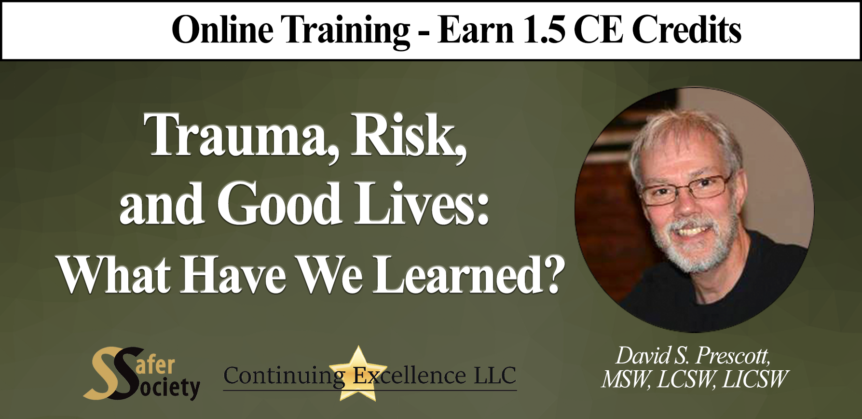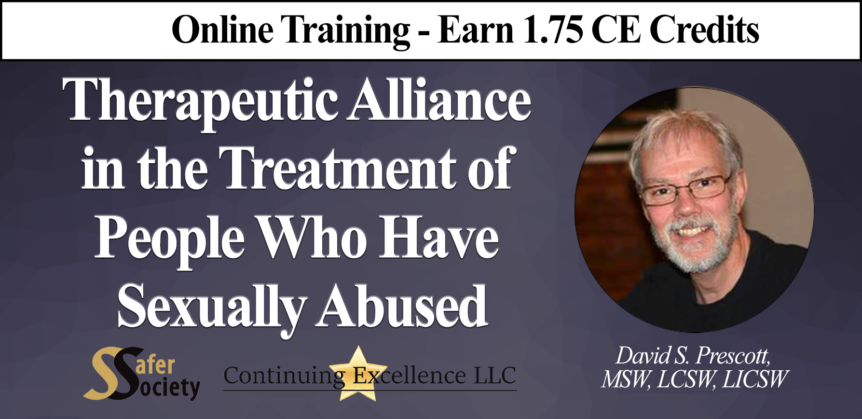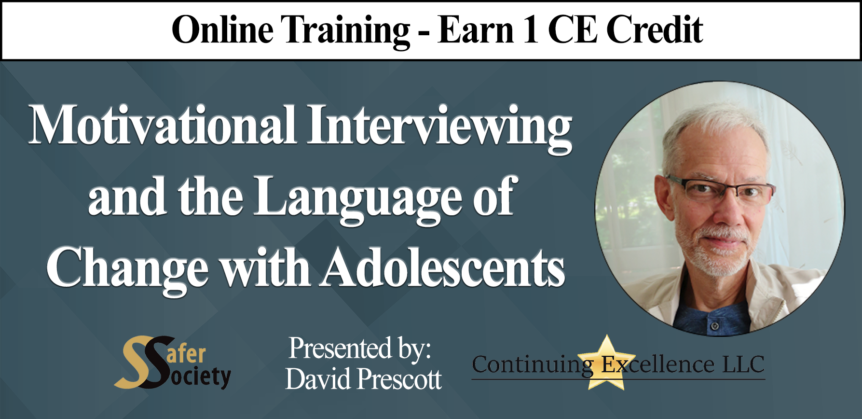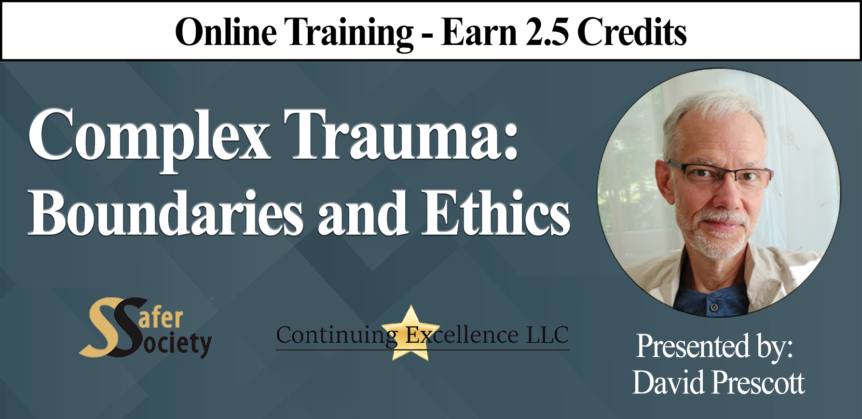This webinar reviews what our field has learned about trauma, adversity, risk, and the Good Lives Model in recent years. It next explores what we can learn about the adhering to the principles of risk, need, and responsivity by examining the underlying narratives of people’s lives. As Tony Ward and others have observed in recent years, our understanding of “factors” often does not adequately account for the processes that drive these factors.
Online Training: Therapeutic Alliance in the Treatment of People Who Have Sexually Abused
Twenty-three years ago, Anthony Beech and Ann Scott Fordham published a study which found that that group therapists treating people convicted of sex crimes “tend to overestimate the help they provide in groups, perceive that they are more in control than members do, and see the group as facilitating diversity and change much more than do the members.” Further, “… marked differences between client and therapist treatment expectations have been related to client dropout from therapy.” More recently, a 2012 study by Steven Walfish and his colleagues found that the average psychotherapist believes themselves to be more effective than the majority of their peers.
Online Training: Motivational Interviewing and the Language of Change with Adolescents
This online training focuses on key skills and concepts in motivational interviewing with adults and adolescents. Importantly, it also covers recent changes made to MI as a model of change during the past three years. MI is a client-centered counseling method for exploring how and why a person might change, and is based upon a guiding style. Its principles and techniques match those known to produce positive outcomes with sexual abusers (e.g., Marshall, 2005). MI can be very useful for motivating adolescents who are ambivalent about change and ambivalent about engaging in treatment.
Online Training: Complex Trauma: Boundaries and Ethics
Virtually every profession has a code of ethics that guides general practice. Professionals working in the area of trauma, however, can face unique challenges. These can include decisions about treatment methods and timing, disclosure of traumatic events and adverse experiences, personal boundaries of the professional, the use of language (for example, invitational versus prescriptive), and many other considerations.



